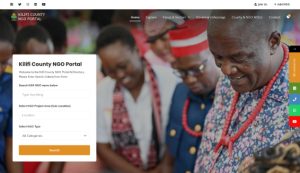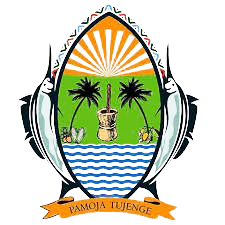Harnessing Technology for Enhanced Learning
The ICT Integration in Education services provided by the Kilifi County Department of Education and ICT are focused on incorporating technology into the educational environment to improve teaching and learning outcomes. By integrating Information and Communication Technology (ICT) into the curriculum and educational practices, we aim to enhance student engagement, foster digital literacy, and prepare students for a technology-driven world. Our ICT Integration services include the following key components:
1. Digital Infrastructure Development
We invest in the development and maintenance of digital infrastructure within schools, including the provision of computers, tablets, interactive whiteboards, and high-speed internet connectivity. Our goal is to ensure that all educational institutions have access to modern technological resources that facilitate effective teaching and learning. We also work on upgrading existing infrastructure to keep pace with technological advancements.
2. Integration of Educational Software and Tools
Our services include the deployment of educational software and digital tools that support various aspects of the curriculum. This includes learning management systems (LMS), e-learning platforms, and subject-specific applications that enhance student engagement and understanding. We provide training for educators on how to effectively use these tools to enrich their teaching methods and to personalize learning experiences.
3. Professional Development for Educators
To maximize the benefits of ICT integration, we offer professional development programs for teachers and educational staff. These programs cover a range of topics, including digital literacy, the use of educational technology, and strategies for integrating ICT into lesson plans. We aim to build teachers’ confidence and competence in using technology to enhance their instructional practices and to support student learning.
4. E-Learning and Blended Learning Solutions
We promote the use of e-learning and blended learning solutions that combine traditional classroom instruction with online resources and activities. This approach allows for greater flexibility in learning and provides students with access to a wide range of digital resources. We support schools in developing and implementing e-learning strategies that cater to diverse learning needs and styles.
5. Digital Literacy and Skills Development
We emphasize the importance of digital literacy and provide training programs that help students develop essential ICT skills. This includes basic computer skills, internet navigation, digital communication, and online safety. By equipping students with these skills, we aim to prepare them for future academic and career opportunities in a digital world.
6. Interactive Learning Environments
We support the creation of interactive and immersive learning environments through the use of technology. This includes the integration of multimedia content, virtual reality (VR), and augmented reality (AR) into the classroom. These technologies provide students with engaging and interactive learning experiences that enhance their understanding of complex concepts and stimulate their curiosity.
7. Access to Online Educational Resources
Our services include providing access to a variety of online educational resources, such as digital libraries, academic databases, and educational websites. We ensure that students and educators have access to high-quality content that supports their learning objectives and research needs. We also promote the use of open educational resources (OER) to enhance the availability of learning materials.
8. Support for Distance Learning
In response to the growing need for flexible learning options, we support the development and implementation of distance learning programs. This includes the use of online platforms and communication tools to facilitate remote instruction and collaboration. We provide technical support and resources to ensure that distance learning is accessible and effective for students and educators.
9. ICT in Administrative Processes
We integrate ICT into administrative processes to improve the efficiency and effectiveness of school management. This includes the use of digital systems for student enrollment, attendance tracking, grade management, and communication with parents and stakeholders. By streamlining administrative tasks, we enable educators to focus more on teaching and supporting students.
10. Monitoring and Evaluation of ICT Integration
To assess the impact of ICT integration on educational outcomes, we implement a comprehensive monitoring and evaluation system. This includes tracking the use of technology in classrooms, evaluating the effectiveness of ICT tools and programs, and gathering feedback from students, teachers, and parents. We use this data to make informed decisions and to continuously improve our ICT integration efforts.
The Kilifi County Department of Education and ICT is committed to leveraging technology to enhance the educational experience for students and educators. By integrating ICT into education, we aim to foster a culture of innovation and digital literacy, preparing students for success in a technology-driven world and supporting educators in delivering high-quality, engaging instruction.








